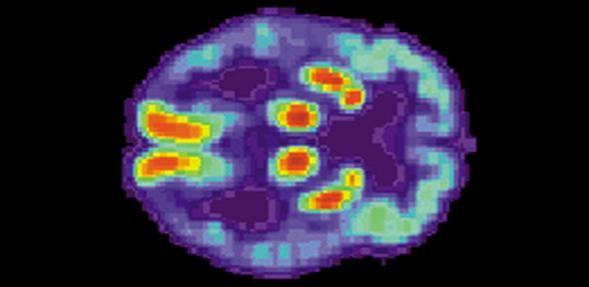
Neurodegenerative brain disorders like Alzheimer's and Parkinson's could be countered safely with the help of two drugs discovered recently by the scientists.
Also Read: Men with more grey hair could be more prone to heart diseases
It was found that these drugs had minimal side effects on mice and one of them is already licensed for use in humans and ready for clinical trials, researchers at Medical Research Council's (MRC) Toxicology Unit in Leicester, UK revealed.
Building up of misfolded proteins takes place in the brain in case of numerous neurodegenerative diseases and it also is one of the main causes of dementias like Prion, Parkinson's and Alzheimer's diseases.
Prion diseases refer to a group of progressive neurodegenerative conditions, which can affect both animals as well as humans.

The researchers had previously found that misfolded proteins accumulating in mice having Prion diseases over-activates which halts secretion of new proteins in brain cells. The researchers then used an experimental drug which stopped the neurodegeneration. The major drawback was that the drug used in this experiment turned out to be poisonous to pancreas, hence couldn't be used for testing on humans.
In the latest research, the scientists tested 1,040 compounds in worms (C elegans), which are considered to be good experimental model for examining medicines that need to be used on the nervous system. The researchers then used mammalian cells to carry out the test on these compounds.
It was found that protein production rates were reinstated in mice by two drugs named trazodone hydrochloride — a licensed antidepressant and dibenzoylmethane — a compound which is being trialled as an anti-cancer medicine.
The emergence of signs of brain cell damage in mice diagnosed with Prion diseases was prevented by both these drugs. Brain shrinkage, which is a characteristic of neurodegenerative disease, was found to be decreased by the drugs in both the mouse models.
"We know that trazodone is safe to use in humans, so a clinical trial is now possible to test whether the protective effects of the drug we see on brain cells in mice with neurodegeneration also applies to people in the early stages of Alzheimer's disease and other dementias," said Professor Giovanna Mallucci, who led the team from the MRC.
"We could know in 2-3 years whether this approach can slow down disease progression, which would be a very exciting first step in treating these disorders."
"Interestingly, Trazodone has been used to treat the symptoms of patients in later stages of dementia, so we know it is safe for this group. We now need to find out whether giving the drug to patients at an early stage could help arrest or slow down the disease through its effects on this pathway," Mallucci concluded.








